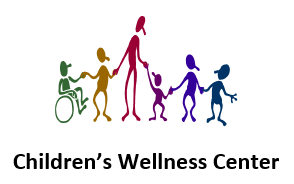From infancy through childhood, nutrition plays an integral role in a child’s physical and cognitive development. You have probably heard the saying that nutrition is the building block of life, and that saying is accurate because every cell within the body relies on vitamins, nutrients, and calories to function properly. Balanced nutrition supports healthy growth and development, physical function, a strong immune system, and brain function. This is not only true during childhood but in adulthood, as well. So, to set children up for a lifetime of good health and powerful brain function, parents need to help support healthy eating habits in kids.
How Poor Nutrition Impacts a Child’s Health and Development
Poor nutrition during infancy, childhood, and adolescence can result in the following short and long-term developmental problems:
- Impaired or stunted growth
- Poor dental health
- Weak immune system
- Energy dysregulation
- Muscle cramps and spasms
- Childhood obesity
- Poor memory
- Slowed cognitive development
- Reduced cognitive skills
- Learning disabilities
While many factors can impact a child’s nutritional intake, you can prevent your child from developing nutrition-related health, developmental, and cognitive problems by ensuring they eat a healthy, balanced, and nutritious diet.
Modeling Healthy Eating
Children learn their lifestyle habits from observing their parents and caregivers. So, modeling healthy eating habits is essential to helping your children get the proper nutrition and develop a positive relationship with food.
You can teach your children healthy eating habits with the following practices:
- Set a Good Example – Children copy the behavior and habits of their parents. So, parents should make healthy food choices, eat balanced and regular meals, eat healthy snacks, and do their best to develop or strengthen their own positive relationship with food. Additionally, when introducing new food to children, the parent can taste it first in front of the child to display a positive reaction and excitement around trying new foods.
- Eat Meals Together – Having meals together creates an association between positive family bonding time and healthy eating habits. Eating meals together provides an opportunity to talk with your children, teach good table manners, and slow down the process of consuming a meal.
- Have Positive Conversations About Food – Teach your children a healthy perspective about food by talking about it as energy, fuel, and nutrients for our bodies. Instead of labeling certain foods as “good” or “bad,” talk about them in terms of the quality of their nutrients and what they can help our bodies do.
- Offer a Variety of Foods – A variety of foods provides a variety of nutrients, and a child’s body needs lots of different nutrients to grow, develop, and function properly. Providing your child with a wide array of foods from all of the food groups (fruits, vegetables, protein, grains, and dairy) will also help them develop a more mature palate that appreciates all of the different tastes and textures foods can offer.
- Eat the Rainbow – In the spirit of eating a wide variety of foods, it can be helpful to also eat foods that are lots of different colors. Differently colored fruits and vegetables offer different nutrients, and it can be fun for children to create a beautiful and delicious rainbow of foods on their plates.
Involving Children in Meal Preparation
In addition to modeling healthy eating habits for kids, parents should help their kids learn how to continue healthy eating habits throughout their lives. You can teach them by involving them in the entire meal preparation process.
While meal planning and grocery shopping might not seem like essential skills to teach your children, your kids will need to learn somewhere or be left to figure it out for themselves when they leave your home. So, you should invite and encourage your children to participate in meal planning, grocery list writing, grocery shopping, food preparation, and cooking.
Involving children in the meal planning process will help them feel excited about eating healthy today while helping them develop life skills that ensure they enter adulthood with healthy habits and a positive relationship with food already well established.
Of course, when involving your children in the meal planning process, be sure to supervise and set age-appropriate tasks for your children – especially when it comes to preparing meals, reading and following recipes, and cooking.
Nutritional Guidance to Support Healthy Eating Habits in Kids
At Children’s Wellness Center, we place a strong emphasis on health, wellness, and preventative care for our young patients. This means we also focus on childhood nutrition because a major part of good health and proper development in children is ensuring they receive the right mix of nutrients and a healthy amount of daily calories.
Our doctors are here to support parents and caregivers with education, guidance, and advice in addition to providing exceptional care for children. If you have any questions about children’s nutrition and fostering healthy eating habits in kids, please contact us.

